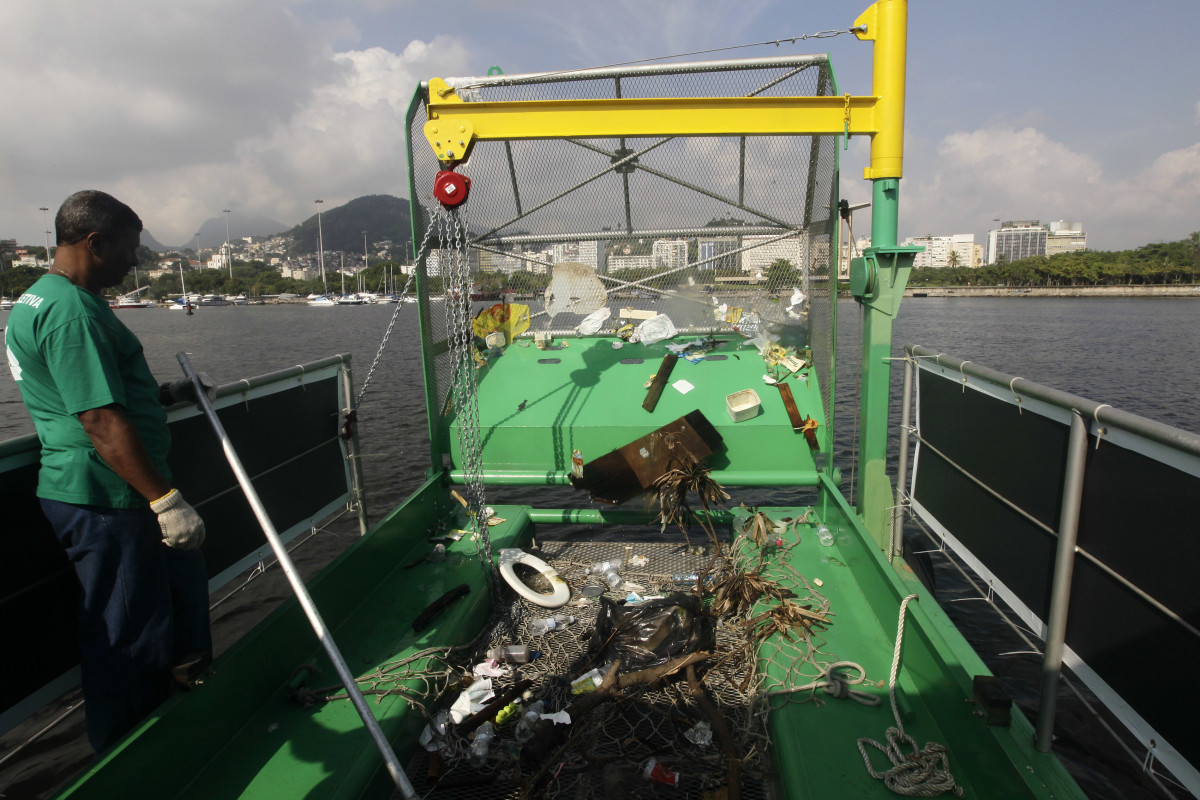Helicopters and GPS to spot floating trash at Rio Olympics
RIO DE JANEIRO (AP) Helicopters will circle overhead starting at 6 a.m. to spot any floating rubbish. Below, trash-collection boats receiving GPS coordinates will sweep up debris before each day of Olympic sailing kicks off in Rio de Janeiro's Guanabara Bay.
Andy Hunt, the head of sailing's world governing body World Sailing, acknowledged to the Associated Press that Rio is difficult. He raised an unfavorable comparison with the yacht-filled New England harbor of Newport.
''We wouldn't be out sailing in Newport with spotting helicopters and eco-boats,'' he said.
Hunt ran off a list of other stop-gaps to sail in Guanabara with the Olympics opening in just over four weeks: floating barriers to keep rubbish from entering the bay, using naturally-occurring microbes to break down pollutants, and hygiene briefings for sailors and staff.
''Over the last couple of years they've mapped where the rubbish tends to collect,'' Hunt said. ''And a lot is based on tidal flows and wind conditions. So rubbish typically collects in certain places.''
Hunt said he'll cancel racing - or move to courses in the open Atlantic - if, for instance, heavy rains flood the bay with tree branches, animal carcasses, or plastic bags washed down from the surrounding hillside slums.
''We will take tough decisions,'' Hunt said. ''If we go out and we're not confident that a field of play can be absolutely clear, it will be moved. If there are no safe racing areas, we will just postpone racing until we can get confident.''
Floating rubbish is the smaller of two problems.
Half of Rio's sewage flows untreated into its waters, rife with unseen viruses and bacteria. A year-long, independent study by AP has shown high levels of viruses and sometimes bacteria from human sewage in the waters where hundreds of sailors will compete when the Olympics open in just over four weeks.
Rio state officials have acknowledged a real cleanup of Guanabara will take 20 years - organizers promised to do it for the Olympics.
World Sailing, backed by the World Health Organization and the International Olympic Committee, says the water doesn't need to be tested for viruses. It says the bacterial levels are below what would be considered dangerous for athletes.
On Sunday, the bay was hit with another problem: an oil slick turned white boats brown as crews trained for the Olympics.
Television is a key reason that sailing is in Guanabara, and not a hundred miles (kilometers) away in a clean, coastal resort. Despite the dirty water, Guanabara is picturesque from a distance with Sugarloaf Mountain and the famous Christ the Redeemer statue is sure to be in the television shot.
''The opportunity for sailing to be at the heart of the Olympic Games is something pretty special,'' Hunt said. ''We're usually off in a venue, 100, 200 miles (kilometers) away.''
Hunt said the games offer tradition-bound sailing a chance to be seen by a younger, more diverse audience that the IOC wants to attract.
Sailing, like all Olympic sports, is continually being evaluated for popularity by the IOC.
''We don't want to connect with just the normal fans of sailing,'' Hunt said. ''The Olympic Games give us the opportunity to connect with a whole range of sports fans and a broader fan base.''
---
Stephen Wade on Twitter: http://twitter.com/StephenWadeAP . His work can be found at http://bigstory.ap.org/content/stephen-wade





